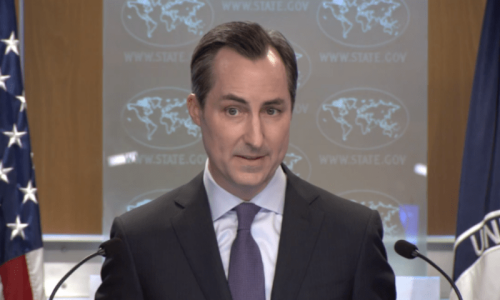
LONDON: Nato commanders are planning a substantial offensive in eastern Afghanistan aimed at insurgent groups based in Pakistan, involving an escalation of aerial attacks on insurgent sanctuaries, and have not ruled out cross-border raids with ground troops, The Guardian newspaper reported on Friday.
The aim of offensive over next two years is to reduce threat represented by Pakistan-based groups loyal to insurgent leaders like Haqqani clan, Mullah Nazir & Hafiz Gul Bahadur.
Nato hopes to reduce level of attacks in the eastern provinces clustered around Kabul to the point where they could be contained by Afghan security forces after transition in 2014. The move is likely to add to already tense atmosphere following recent border post attack by Nato helicopters that resulted in death of 24 Pakistani soldiers.
While drawing down forces in Helmand & Kandahar, the US will step up its presence in eastern provinces bordering Pakistan, bringing long-festering issue of insurgent sanctuaries in Pakistan tribal areas to a head. Message being given to Pakistan military is that if it cannot or will not eliminate insurgent havens, US forces will attempt job themselves, report said.
It is unclear to what extent killing of 24 Pakistan soldiers in Nato air strikes last Saturday will have on Nato strategy. An investigation is underway into the incident. As a consequence, Pakistan closed supply routes used by Nato-led International Security Assistance Force (ISAF) and barred the US from using a Pakistani air base to launch drones.
Isaf commander, General John Allen, said the need to confront sanctuaries in Pakistan was “one of the reasons we are shifting our operations to the east”.
In an interview in Kabul, Allen, a US marine, did not give specifics of strategy and said nothing about cross-border operations.
According to The Guardian, Allen said he did not know what long-term consequences of last Saturday's clash would be, describing it as a “tragedy”, but made clear that push to the east would continue.
“Ultimately outcome we hope to achieve in the east is a reduction of insurgent networks to the point where Afghan National Security Forces (ANSF) can handle them, reducing them in 2012, if necessary going after them in 2013,” Allen said.
“I won’t go into specifics of operations but as we consolidate our holdings in the south and as population centers there in Helmand River valley and in (Kandahar,) we will conduct substantial operations in the east idea being to expand security zone around Kabul. In particular we are going to pay lot of attention to south of Kabul, Wardak, Logar, Ghazni, Zabul.
Because in the end if you have a population in the south that feels secure and it's secured by ANSF, and you have a population in east and around centre of gravity of Kabul, and those two are connected by a road so you have freedom of movement, you have a pretty good outcome.”















































Dear visitor, the comments section is undergoing an overhaul and will return soon.